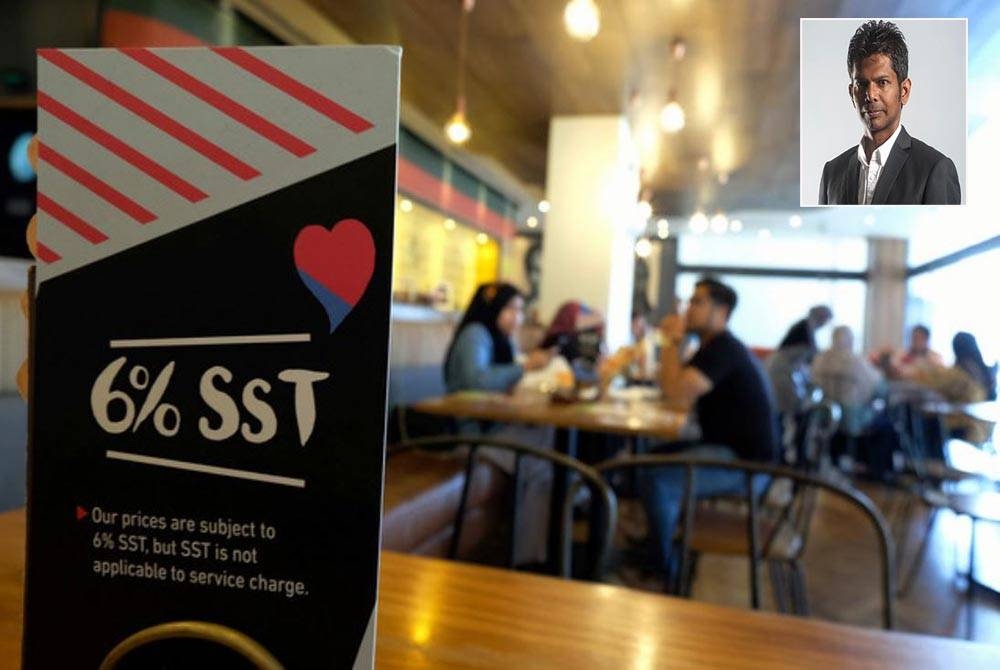GST: Three or four per cent is the most suitable for the country
NURUL RIDUAN NOR ASHAHA NUR IFTITAH ROZLAN
SHAH ALAM - The government needs to consider the rates of three or four per cent in their discussion for Goods and Service Tax (GST) in replacing the Sales and Service Tax (SST) for the tabling of Budget 2023 in Parliament on Oct 7.
Malaysian Association of Tax Accountants (Mata) Secretary-General Dr Mohd Fairuz A Razak said the reintroduction of GST at the rates were expected not to have a major impact on the people.
He said the GST system was fair in terms of tax collection towards the non-formal industries and could be the best approach to track those who evaded reports as well as tax payments when compared to SST.
Fairuz said even though the GST tax system was said to be far better, the current government was not expected to take drastic steps to revive the tax system which caused an uproar that led to the fall of Barisan Nasional (BN) on the 14th General Election (GE15) on 2018 especially with upcoming GE15.
"The reintroduction process for GST may take a long time because the GST Act has been abolished, not suspended.
"The usual drafting process up to the presentation and approval of the act in Parliament before it would be gazetted, gaining the Yang di-Pertuan Agong's approval would take some time," he said to Sinar Premium.
GST represented the usage tax imposed towards almost all transactions in withdrawals or used for around 60 per cent of goods and services under the Consumer Price Index compared to 38 per cent under SST.
The GST was abolished by the government in June 2018 and was replaced by SST to fulfill the Pakatan Harapan (PH) manifesto and was still implemented although PH fell on March 2020.
The GST which was introduced in 2015 successfully generated RM44 billion in 2017 while the SST generated around RM26.7 billion in 2020 and RM27.9 billion in 2021.
Fairuz said the reintroduction of GST would have the country expected to generate around RM25 billion in the first year with yearly increments.
He said it would make the country take a step forward towards the direction of becoming a developed nation and the people would be in a fair, transparent and effective tax system.
"In the previous GST implementation, the corporate and individual tax was reduced multiple times to be at a progressive and competitive level," he said.
Fairuz said it was not surprising that the GST system was said to be much more effective because each stage would be monitored by the Royal Malaysian Customs Department and supported by the Ministry of Domestic Trade and Consumer Affairs.
As for refunds, he said all companies needed to register their business entity for the purpose of collecting the GST.
"GST was not charged to costs, but the value of the item itself. GST would not be included in the price or overall costs compared to SST.
"Basic needs such as food, medicine, education and others were not taxed or had zero GST decreasing the burden for B40 and M40 group," he said.
He said the percentage of GST being low could reduce the price of goods.
"The GST system was more transparent because each party in the chain of suppliers would claim back the tax paid.
"With SST, any parties (non-manufacturers) could raise the prices as they please however, the manufacturers could band together with other companies to pay taxes," he said
Fairuz said GST previously had its own weakness which include the many caretakers or companies forced to wait a long while to claim the tax refunds.
"The sellers would wait for months to claim GST and there was no monitoring done to sellers who raised their prices with the excuse of GST," he said.
Fairuz said the SST was an outdated system that had its weakness among them were the creation of the double taxation effect that caused the prices of goods to be easily manipulated by sellers to avoid paying taxes to the government.
"The SST is usually included in the cost of items or the prices were raised along with the SST itself.
"The cost added and increased through stages according to the manufacturing stage before reaching the consumers and we had paid a total taxation of ten or six per cent for the price of goods.
"The increase of process stages, the tax would be increased and inserted in the price of goods," he explained.










